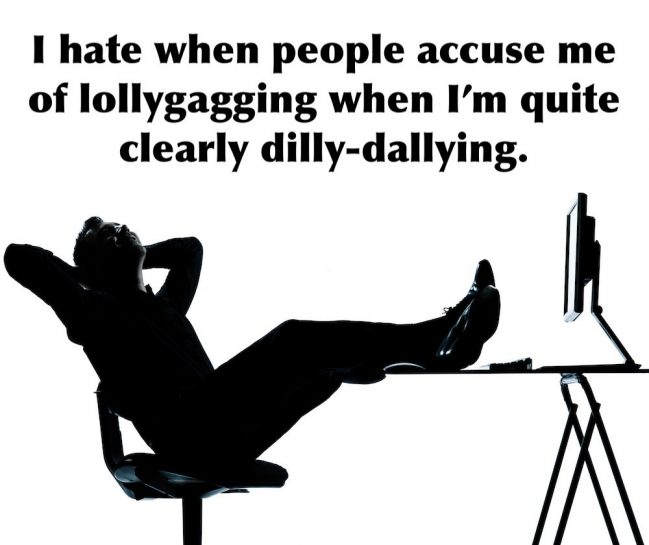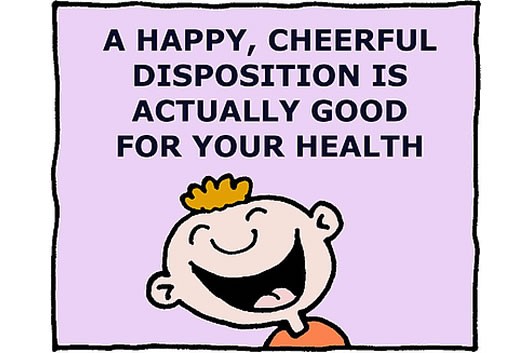Word-Of-the-Week #747: Cheerful
November 29, 2018 by Susan Clarke · Comments Off on Word-Of-the-Week #747: Cheerful
Cheerful – having a happy disposition; in good spirits.
How has the first week of the official Holiday Season been for you? Did you allow yourself to lollygag? Are you feeling cheerful?
This week’s WOW is brought to you by my local Einstein Bagels Store. Lox and bagels were going to be our Thanksgiving breakfast treat! I called the store in the morning and asked that they save me two everything bagels. Not a problem.
When I arrived at the store just after noon there was a line. And as I stood there waiting I saw the small chalk board next to the register with big lettering that read, “Word of the Day” on the top and “Cheerful” underneath it.
How many people do you think complained about waiting? Or anything else for that matter? The staff was busy, moving as fast as they could, and everyone was attentive and smiling. I thought to myself “What a brilliant idea!” Putting any positive word on that chalk board would have the same effect I’m pretty sure.
If you need a gentle nudge to get more cheerful check out these quotes from Success.com. My favorite is this one, “The energy you give off is the energy you receive. I really think that, so I’m always myself—jumping, dancing, singing around, trying to cheer everybody up.” — Cara Delevingne
This week’s focus is cheerful. Would you say you have a happy disposition? If you are feeling down do you know how to lift your spirits? If it’s true that the energy you give off is the energy you receive, what are you getting?
I LOVE feedback! Join my Facebook community on my FUN-damentals Fan Page.
Word-Of-the-Week #746: Lollygag
November 22, 2018 by Susan Clarke · Comments Off on Word-Of-the-Week #746: Lollygag
Lollygag – to waste time by puttering aimlessly; dawdle.
Do you know anybody that dawdles? Do you ever lollygag? Did you see the movie Bull Durham? It is one of my all time favorite movies!
Today is Thanksgiving and the official start of the Holiday Season. A word that is always associated with it is Believe. And it brought to mind the scene where Crash Davis (Kevin Costner) is in the home of Annie Savoy (Susan Sarandon). She picks one player each season for her lover. She hasn’t decided between Crash and “Nuke” Laloosh (Tim Robbins) saying that it has to do with Quantum Physics.
At that point Crash gets up and says, “I don’t believe in Quantum Physics when it comes to matters of the heart.” He then goes into a long dialogue about everything he believes in. The last line of which I can quote by memory, “I believe in long, slow, soft, deep, wet kisses that last three days.” To which Annie sighs deeply.
There are so many great lines in the movie but the one that always cracks me up is when the coach yells for all of the players to get in the shower immediately after losing their 12th game. He then says, “You lollygag the ball around the infield. You lollygag to first base. You lollygag in and out of the dugout.” He then says, “You know what that makes you?” To which his right hand man behind him (who parrots everything he says throughout the movie) answers “A bunch of lollygaggers.”
The Holidays can be very stressful…or not. It is your choice. I believe that dawdling is a good thing. I start my holiday decorating right after Halloween. And that allows me to actually enjoy it since I am not rushing. There is no pressure when it’s done at a leisurely pace. I am thankful that I allow myself to dawdle at times. Do you?
This week’s focus is to lollygag. You do know that it’s OK to do that? How about taking some time just for you? You could even watch Bull Durham. Beware though, it is Rated R. Here’s to having less stress, enjoying the Holidays more, and being thankful everyday for all we have!
I LOVE feedback! Join my Facebook community on my FUN-damentals Fan Page.
Word-Of-the-Week #745: Disposition
November 15, 2018 by Susan Clarke · Comments Off on Word-Of-the-Week #745: Disposition
Disposition – one’s usual mood or frame of mind.
What would you say your usual mood is? Do you see the glass half-full or half-empty?
This week features excerpts from a couple of articles on Disposition.
From the Economist, “Sunny side up – Optimism, it seems, is in the genes.”
“For some people in this world, the glass always seems to be half-full. For others it is half-empty. But how someone comes to have a sunny disposition in the first place is an interesting question.
It has been known for a long time that optimists see the world selectively, mentally processing positive things while ignoring negative ones, and that this outlook helps determine their health and well-being. In recent years, it has also become clear that carriers of a particular version of a particular gene are at higher risk than others of depression and attempted suicide when they face traumatic events.”
And it turns out that some of us have genes that are biased towards positive images and away from negative ones. In other words, the optimists really do see the world differently. Amazing huh?
She goes on to say, “Rose-tinted spectacles may be good for one’s health, as these results fit in with wider ideas about how a tendency to look on the bright side of life is part of being resilient to stress. Those with short variants of this gene are expected to have an increased susceptibility to mood disorders following such stress. It is not all good news, though, for optimists. Because these results suggest that a person’s attitude to life is inherited, they serve as a stark warning to all buoyant optimists that trying to cheer the rest of the world up with nothing more than a smile and an effortlessly sunny disposition is doomed to failure.”
And this from Devaney Rae Jones “Is Your Disposition Repelling Your Choices?
Do you ever consider how your disposition affects your available choices in life? Even more, how does your disposition impact your existing relationships, as well as the outcomes in your work or project efforts?
Oh, and for the record: your disposition has to do with your usual mood and your tendencies to act or to think in a certain way.
Your Mindset – is connected to your words. Here’s how the mindset-to-words connection flows: when your established set of attitudes (your mindset) is left unchallenged, over a period of time you generally develop fixed beliefs, strong opinions, and patterned tendencies in your responses and behaviors. These impact your interactions with others about various subject matter, especially your responses and behaviors as reflected through your words. Therefore, your mindset becomes obvious to others through your words.
Here’s the Deal: Are you drawing amazing choices (people and situations) into your life, or do you repel them, through the reflection of your mindset?
And one more thought from LA Times writer Michelle Vartan about dealing with the winter blues. She writes, “Be Mindful. Brain scans show that practicing gratitude can rewire our reticular activating system – the area of our mind that focuses on good versus bad. Once you wake up, instead of focusing on your to-do list, think of three things you’re grateful for, then get out of bed.”
This week’s focus is on your disposition. Personally I have always believed that your disposition is a choice and can be changed. Given that, would you keep the disposition you have? Have you figured out what is FUN for you? It just might change your disposition if you did it more!
I LOVE feedback! Join my Facebook community on my FUN-damentals Fan Page.
Word-Of-the-Week #744: Love
November 8, 2018 by Susan Clarke · Comments Off on Word-Of-the-Week #744: Love
Love – an expression of emotion.
Love is a versatile word — like what it describes. Love takes many forms.
Once again this week we experienced another horrendous act of violence and when I read this article by the Associated Press, “Jewish nurse says he treated synagogue shooting suspect out of love” I felt compelled to make it this week’s focus.
“Love. That’s why I did it. Love as an action is more powerful than words, and love in the face of evil gives others hope,” Ari Mahler wrote on Facebook.
PITTSBURGH — A Jewish nurse who treated the Pittsburgh synagogue shooting suspect says that he saw confusion but not evil in the man’s eyes, and that his own actions stemmed from love.
“I’m sure he had no idea I was Jewish,” registered nurse Ari Mahler wrote in a Facebook post about suspect Robert Bowers, who was taken to Allegheny General Hospital after the Oct. 27 rampage at the Tree of Life synagogue in Pittsburgh’s Squirrel Hill neighborhood that left 11 people dead.
Mahler described his role as “The Jewish Nurse” who treated the suspect, saying that he felt nervous about sharing his account but that “I just know I feel alone right now, and the irony of the world talking about me doesn’t seem fair without the chance to speak for myself.”
“I didn’t say a word to him about my religion,” Mahler said in the post. “I chose not to say anything to him the entire time. I wanted him to feel compassion. I chose to show him empathy. I felt that the best way to honor his victims was for a Jew to prove him wrong.”
An Allegheny General Network representative confirmed the authenticity of the post.
Bowers, 46, pleaded not guilty Thursday to a 44-count grand jury indictment charging him with murder, hate crimes, obstructing the practice of religion and other crimes, for which he could face the death penalty. Authorities say Bowers raged against Jews during and after the massacre. He remains jailed without bail.
Mahler, whose Facebook page noted that he started his job in the hospital’s emergency department March 1, said he didn’t see evil in Bowers’ eyes but “a clear lack of depth, intelligence, and palpable amounts of confusion.” He said he couldn’t go into detail about their interaction due to medical privacy requirements, but Bowers thanked him “for saving him, for showing him kindness, and for treating him the same way I treat every other patient.”
He noted that this came from the same person accused of mass murder who “instilled panic in my heart worrying my parents were two of his 11 victims less than an hour before his arrival.”
Mahler, who said that his father was a rabbi and that he experienced anti-Semitism “a lot” as a kid, said he acted out of love.
“Love. That’s why I did it,” he said. “Love as an action is more powerful than words, and love in the face of evil gives others hope. It demonstrates humanity. It reaffirms why we’re all here. … I could care less what Robert Bowers thinks, but you, the person reading this, love is the only message I wish instill in you. If my actions mean anything, love means everything.”
And this from Brian Resnick at Vox.com. “You might think that with every new death, we’d all feel greater and greater empathy, greater and greater sadness.
But no. It’s human to feel numb.
There’s a profound and infuriating psychological concept that can help explain increasing numbness in the face of long, slow-burning tragedy like mass gun violence in America. It’s this: As the number of victims in a tragedy increases, our empathy, our willingness to do something, reliably decreases.”
This week’s focus is on love. Would you be able to show compassion and empathy if you were put in Ari’s position? Wouldn’t it be great if we all could feel more love instead of feeling more numb? Something has to be done. I think we should start a LOVE movement – starting today!
I LOVE feedback! Join my Facebook community on my FUN-damentals Fan Page.
Word-Of-the-Week #743: Persuasion
November 1, 2018 by Susan Clarke · Comments Off on Word-Of-the-Week #743: Persuasion
Persuasion – to convince others to share your opinion or take the action you recommend.
Would you say you are a great communicator? Do you easily connect with people? Are you able to ignite someone’s imagination with your verbal skills?
“If you’re a great communicator, you should be a great wealth creator” by San Diego UT columnist Neil Senturia is a perfect follow up to last week’s WOW when you have the “Ideal Job.”
“Ronald Reagan was known as the Great Communicator. Leaving aside his politics, what does come through from his speeches is his ability to connect with his audiences.
A billion words are written every year either extolling the need to communicate, the value of communication, the lack of communication or the difficulty of communication. Carmine Gallo, a Harvard University instructor, has written a book, “Five Stars,” which purports to give us the communication secrets to move from good to great at this skill.
To Gallo’s credit, his book is not touchy-feely. The core premise is that being good at communication, good at talking, good at “mastering the ancient art of persuasion” is all about creating more wealth – for you. In other words, if you can learn to spin and combine words and ideas “to ignite people’s imagination,” you will get more money. You will be richer. His thesis is simple. In this age of artificial intelligence, globalization and automation – the one skill that can separate and elevate you above both the man and the machine are words – and how they are put together.
Notice, he did not say power point; he did not say text or email. Gallo’s passion centers on his study of the primitive brain and he says that, after thousands of years of evolution, the way we process information is still through the vehicle of a story, “through emotions and empathy.”
Now, this really resonates for me personally, since I frequently begin an interaction with this sentence, “let me tell you a story.” Sometimes it is a full and true story and sometimes it is a nuanced story, and sometimes my nose grows to Pinocchio size. The key is that the story is always in the service of communicating an idea, a point of view. You might call them fables with just enough reality to hold my audience and move their needle in the desired direction.
Rule No. 455: Never let the truth get in the way of a good story.
Gallo argues that mastering this ancient art of persuasion is a competitive skill. It elevates you above the rest. There are also another billion words written about leadership. And leading seems to be very closely aligned with active persuasion, not just giving an order. Even in the military, getting Harry to take Hamburger Hill with gusto, recognizing, he can easily die, relies on persuasion and believing in the cause, or what he calls “articulating a vision.”
Gallo gives examples in his book ranging from Aristotle to my favorite wild man, Richard Branson, who says, “I do not believe you could be a great leader today without being a good storyteller.” Branson has a unique model for creating stories; he brings people to Necker Island, (his private 74 acre retreat in the British Virgin Islands), and he gathers the group around a fire pit. He says, “the best ideas for our companies have come from around a campfire.” Wow, I love that. It feels wonderfully primitive, and of course, we all know about going to a camp or a retreat and hearing ghost stories.
The master of all, according to Gallo, is Aristotle and his “three-part formula.” First, you need to have ethos, which is credibility and character. (Not just being a character, but having character). Second, you need to have “logos,” which is the logical structure to your argument. You cannot wander or ramble . Finally, “you cannot persuade another person to change their mind or behavior without pathos, which is emotion.”
We often make decisions based on emotional narratives without giving appropriate weight to compelling and possibly conflicting facts –being forced to later deal with the infamous, “it seemed like a good idea at the time.”
Gallo cites TED talks as powerful, because they tell stories. No bullet points are allowed. And finally, let’s go to show me the money. The statistics show that strong verbal skills will get you promoted faster than just experience. In business presentations, verbal trumps the visuals. The great persuaders have an unfair competitive advantage. What the great ones communicate is not just an idea, but “an expectation of what they hope to achieve.” They are the artists who mesmerize and spin a tangled web with words. That is not just a soft skill; it is fundamental to your success.”
This week’s focus is on persuasion. Do you want to get promoted? Are you credible and is your character intact? How good are you at convincing someone to change their mind or behavior?
I LOVE feedback! Join my Facebook community on my FUN-damentals Fan Page.






